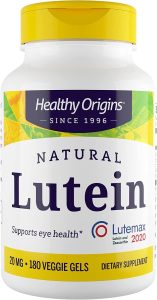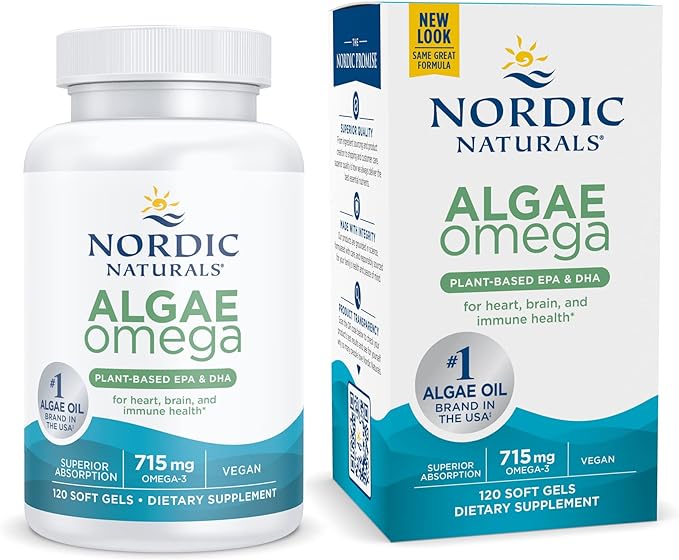INTRODUCTION
Our eyes are our windows to the world, allowing us to perceive the beauty around us. Maintaining good eye health is crucial for a high quality of life. While genetics play a role, our lifestyle choices, including our diet, significantly impact our eye health. In this comprehensive blog, we delve into the benefits of plant-based or vegan diets for supporting eye health. From antioxidants to essential nutrients, we explore how the foods we eat can contribute to clear vision and prevent age-related eye conditions.
THE IMPORTANCE OF EYE HEALTH
Before we dive into the specifics, let’s understand why eye health matters. Common eye diseases, such as cataracts, macular degeneration, glaucoma, and diabetic retinopathy, can significantly affect our vision as we age. These conditions often lead to impaired eyesight or even blindness. While genetics and chronic diseases play a role, our diet plays a crucial part in preventing or mitigating these issues.
THE INFLUENCE OF ANIMAL PRODUCTS ON EYE HEALTH
Animal products, when consumed excessively or as part of an imbalanced diet, can indirectly contribute to eye health problems through various mechanisms. In this article, we explore the scientific evidence supporting these connections and shed light on the potential risks associated with animal product consumption.
High Cholesterol and Age-Related Macular Degeneration (AMD):
Consuming animal products rich in saturated fats, such as red meat and dairy, can elevate cholesterol levels. Research indicates that elevated cholesterol is linked to an increased risk of age-related macular degeneration (AMD), a prevalent cause of vision impairment among older individuals.
Obesity, Diabetes, and Diabetic Retinopathy:
Overindulgence in animal products, particularly processed meats and high-fat dairy, may contribute to obesity and type 2 diabetes. These conditions, in turn, elevate the risk of diabetic retinopathy—a serious eye complication that can result in vision loss or blindness if not managed promptly.
Inflammation and Eye Conditions:
The consumption of red and processed meats, rich in saturated fats and AGEs, can trigger chronic inflammation. This inflammatory response is associated with several eye conditions, including AMD and cataracts3.
Balancing Nutrients for Eye Health:
Although animal products provide essential nutrients like zinc and vitamin A, an excessive intake can disrupt dietary balance. A diet deficient in fruits, vegetables, and plant-based foods may compromise the supply of vital antioxidants (such as lutein, zeaxanthin, vitamin C, and vitamin E), which play a pivotal role in maintaining optimal eye health and preventing age-related eye disorders.
Heme Iron and AMD Risk:
Heme iron, predominantly found in animal products, has been associated with an increased risk of AMD, possibly due to its pro-oxidant properties and its role in promoting oxidative stress in the retina.
It’s important to note that moderate consumption of certain animal products as part of a balanced diet is not inherently harmful to eye health. However, a diet rich in plant-based foods, including fruits, vegetables, whole grains, nuts, and seeds, is generally associated with better eye health and a lower risk of developing age-related eye diseases. Additionally, maintaining a healthy lifestyle that includes regular exercise, not smoking, and managing chronic health conditions like diabetes can also help preserve eye health.
KEY NUTRIENTS FOR EYE HEALTH
1. Vitamin A
Vitamin A is essential for maintaining healthy light-sensing cells in our eyes, known as photoreceptors. A deficiency in vitamin A can lead to night blindness, dry eyes, and other serious conditions. While animal-derived foods like liver, egg yolks, and dairy products are rich sources of vitamin A, plant-based diets can also provide this vital nutrient. Provitamin A carotenoids, such as beta-carotene found in kale, spinach, and carrots, contribute to our vitamin A intake.
2. Lutein And Zeaxanthin
These yellow carotenoid antioxidants are crucial for eye health. They form macular pigments that protect our retinas from harmful light and oxidative damage. Although egg yolks are considered one of the best sources due to their high fat content, Lutein and zeaxanthin can also be found in collard greens, broccoli, pistachios, and green peas. They play a significant role in preventing conditions like cataracts and age-related macular degeneration.
3. Omega-3 Fatty Acids
Diets rich in omega-3s, lutein, zeaxanthin, and vitamin C can significantly decrease the risk of macular degeneration, Diabetic retinopathy and may also benefit those with dry eye disease. Plant-based sources of omega-3s include flax seeds, pumpkin seeds, and chia seeds. These essential fatty acids support overall eye health and reduce inflammation.
4. Antioxidants From Herbs And Spices
Certain herbs and spices offer antioxidant protection for our eyes. Garlic contains compounds that may help prevent cataracts, while turmeric (with its potent antioxidant curcumin) has shown protective effects against cataract formation in animal studies.
PRACTICAL TIPS FOR A PLANT-BASED EYE-HEALTHY DIET
- Leafy Greens: Incorporate kale, spinach, and collard greens into your meals. These greens are rich in lutein and zeaxanthin.
- Colorful Fruits and Vegetables: Opt for colorful produce like carrots, bell peppers, and sweet potatoes. Their vibrant hues indicate high antioxidant content.
- Omega-3 Sources: Include flax seeds, walnuts, and chia seeds in your diet for omega-3 fatty acids.
- Herbs and Spices: Add garlic, turmeric, and other flavorful herbs to your cooking.
- Hydration: Stay hydrated to maintain tear production and prevent dry eyes.
CONCLUSION
A plant-based diet can significantly contribute to maintaining optimal eye health. By incorporating nutrient-rich foods, we not only support our vision but also enhance our overall well-being. Remember, what we put on our plates directly impacts our eyes’ health, so choose wisely and savor the benefits of plant-based nutrition.
Disclaimer: Always consult with a healthcare professional before making significant dietary changes, especially if you have existing eye conditions.


